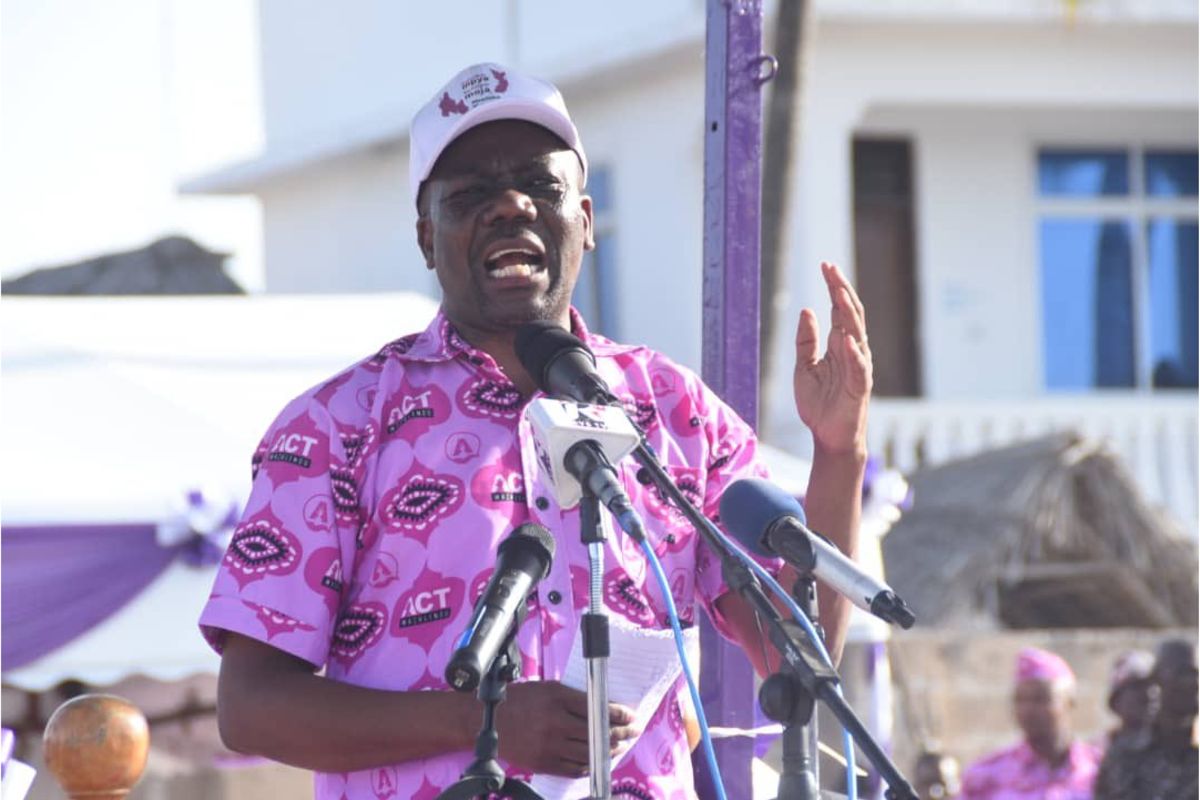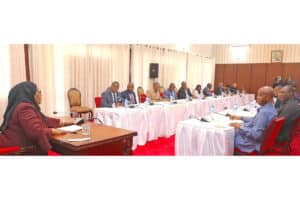There is a visible disconnect between private and public ethics in Tanzania today. From the foregoing, I hypothesise that the complaints of ethical misconduct in public service
In Tanzania, there exists a behavioural, institutional and structural gap that is supposed to bridge the missing link between the interiorized private value system and public ethics.
Notably, the education system in Tanzania has well-established fundamentals in moral education.
In practice, however, this does not go beyond theories in the curriculum. Private ethics, which is based on family moral upbringing, is the result of the way a person has been culturally, ethically, and religiously brought up at home.
It said, and I do concur with the assertion that a person who is unethical in his private life can hardly be expected to be ethical in his public life, and the vice versa can be true. It is for this reason that I agree with what the current president of the United States, Dr Samia Suluhu Hassan, says.
She says that the lack of ethics and integrity in Tanzanian politics, public and even private institutions is a reflection of the moral upbringing Tanzanians are getting from family settings or the moral essentials they were not trained in at home.
In the public service in Tanzania, the code of ethics and conduct for public service emphasises eight norms that a public servant should consider in his service.
These standards include respecting all human rights and being courteous; performing diligently and in a disciplined manner; promoting teamwork; pursuing excellence in service; exercising responsibility and good stewardship; promoting transparency and accountability; discharge duties with integrity; and maintaining political neutrality.
Despite its well-articulated articulation, this code of conduct does not find its translation in its public performance. It is also clear that the awareness level of these ethical guidelines is very low.
Many public servants are not aware of the code of ethics and conduct in Tanzania. And on the rare occasion that it is known, it is hardly put into practice.
This begs the question: what mechanisms need to be put in place to ensure that these norms are internalised in such a way that they naturally flow into public service as public ethics. Enacting these norms depends a lot on private ethics, which again reflect family moral upbringing.
There is evidence that one of the hindrances to this effort is the contradiction between religious doctrines and cultural teachings. While culture values blood linkages, religious doctrines call for love that is anchored in the value of humanity. This causes ethical dilemmas that manifest themselves in public service. The question is: What should a public leader or servant do when he is in an ethical dilemma?
When a public leader or servant is confronted with a situation that is against his or her moral conviction and informed by his or her moral and religious upbringing, what should she or he do?
The ethics of public service should basically be free from religious or political influences and party ideologies, which are often replete with vested interests. It is not appropriate for a public servant to spoil his or her self-identity or abuse public office for the sake of personal beliefs, financial gain, honour, or fame. Unethical conduct in the public office can easily be normalised through an avalanche of generational unethical conduct in public life and services.
Because of self-interest and personal gains, the coming generation could easily normalise abuse of public office. The tendency to normalise corruption by labelling its perpetrators ‘smart’ sanitises an intrinsically unethical act. It actually misinterprets the real meaning of the word smartness. In public opinion, smartness (ujanja in Kiswahili) can be rendered in the following ways:
Formula: UJANJA = AKILI-MAADILI (SMARTNESS = INTELLIGENCE-ETHICS).
Although ‘ujanja’ (smartness) in colloquial terms in Tanzania public service implies beguiled stealing, the fact that one has used apparently ‘cleaned’ documents without being caught does not amount to ethical smartness.
Another component of unethical public conduct in contemporary public service in Tanzania
is the element of corruption camouflaged in connection. Sadly, this connection not only involves public servants but also professionals with the obligation to oversee financial accountabilities, for example, auditors and law enforcers. This type of connection sometimes has the appearance of nepotism, which is another form of corruption.
My appeal therefore is to have a’mother morality’ (the way we speak of mother tongue) whose formula could be:
UJANJA = AKILI + MAADILI (SMARTNESS = INTELLIGENCE + ETHICS)
The missing link that I now clearly see between private and public ethics in the Tanzanian public sector is that AKILI IS NOT ASSOCIATED WITH MAADILI. We should avoid the formula that equates smartness (ujanja) with intelligence, which is void of ethics.
Jackson J. Coy, Department of Philosophy and Religious Studies College of Humanities, University of Dar es Salaam.















